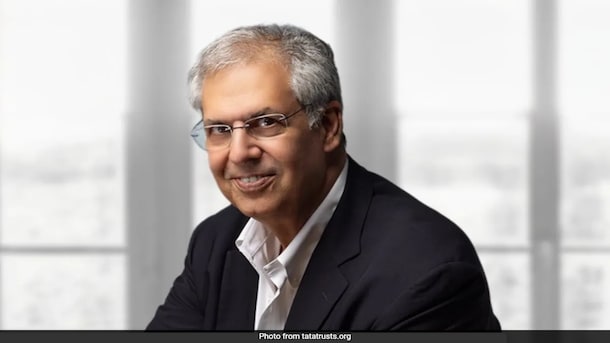Opinion | To Just Welcome The 'Immigrant' Is Not The Point - By Shashi Tharoor
Nations have the right to regulate entry, to balance openness with cohesion. But the tone of the current moment suggests something more corrosive - a retreat not just from policy generosity, but from moral imagination.
There was a time - not so long ago - when the image of the United States was inseparable from the idea of arrival. The Statue of Liberty, torch aloft, stood not merely as a monument but as a promise: that the tired, the poor, the huddled masses yearning to breathe free might find refuge and renewal on its shores. That promise, however imperfectly kept, shaped the moral imagination of the twentieth century. Today, it is fading.
Across the Western world, a new sentiment is sweeping through political discourse and public life - a hardening of borders, not just physical, but psychological. Immigration, once framed as enrichment, is increasingly cast as erosion. The United States, long mythologised as a nation of immigrants, now finds its reputation for openness under strain. Europe, with its layered histories of colonial entanglement and postwar reconstruction, is riven by tensions over asylum seekers, refugees, and migrant labour. The rhetoric has sharpened; the welcome has waned.
A Cultural Shift
This shift is not merely political - it is cultural. The anxiety is not about immigration in the abstract, but about visible immigrants: those whose skin colour, dress, language, or religious practice mark them as 'other'. The unease is not with movement, but with difference. A Sikh turban, a hijab, a West African accent, a Latin American surname, a brown skin - these have become lightning rods for a deeper discomfort, one that reflects white anxieties about identity, belonging, and the fear of cultural difference and dilution.
In Europe, the influx of refugees from Syria, Afghanistan, and sub-Saharan Africa has tested the limits of liberal tolerance. Germany's bold welcome in 2015 now seems a distant memory, as far-right parties gain ground by stoking fears of demographic change and cultural displacement. France wrestles with its secular ideals and the visibility of Islam in public life. The UK, post-Brexit, has turned inward, its immigration debates entangled with questions of sovereignty and national character.
The American Anxiety
In the United States, the southern border has become a theatre of political spectacle. Migrants from Central America, fleeing violence and poverty, are met not with compassion but with suspicion. The language of invasion, once confined to fringe discourse, now echoes in mainstream politics. Even legal immigration - once a bipartisan consensus - is increasingly viewed through a lens of zero-sum competition.
What explains this retreat from openness? Part of the answer lies in economic vulnerability. Globalisation, for all its aggregate gains, has left many communities feeling abandoned: factories shuttered, wages stagnated, and the promise of upward mobility dimmed. In such contexts, immigrants become scapegoats - symbols of a system that seems to reward outsiders while neglecting insiders.
But the deeper story is cultural. David Goodhart's influential thesis of the "Somewheres" versus the "Anywheres" offers a compelling frame. The "Anywheres" - mobile, educated, cosmopolitan - thrive in a borderless world. They speak the language of diversity, fluid identity, and global citizenship. The "Somewheres" - rooted in one place, one religion, one language and one culture - feel alienated by these shifts. Their values are local, their identities inherited, their sense of belonging tied to tradition and territory.
Somewheres vs Anywheres
In recent years, the "Somewheres" have found their voice. From Brexit to Trumpism, from the rise of nationalist parties across Western Europe to the open assaults on "political correctness", the momentum has swung toward those who feel left behind by the influx of foreigners. Immigration becomes the fault line - not because of what immigrants do, but because of what they represent: change, complexity, and the erosion of familiar norms.
This is not to say that all resistance to immigration is xenophobic. Nations have the right to regulate entry, to balance openness with cohesion. But the tone of the current moment suggests something more corrosive - a retreat not just from policy generosity, but from moral imagination. The idea that strangers might enrich us, that difference might deepen our humanity, is giving way to a politics of fear and exclusion.
The Countries That May Come Out Stable
And yet, paradoxically, some of the countries most resistant to immigration may weather this moment with greater stability. Japan, with its demographic challenges and cultural homogeneity, has long maintained strict immigration controls. Hungary, under Viktor Orbán, has positioned itself as a bastion of Christian Europe, rejecting refugee quotas and embracing ethno-nationalist rhetoric. These nations, by virtue of their insularity, may avoid the social tensions that more open societies now confront. But at what cost?
Insularity may offer short-term calm, but it risks long-term stagnation. Innovation, dynamism, and cultural vitality often emerge from encounter-from the friction and fusion of different ways of being. Many of the great cities of the world - New York, London, Paris, Toronto - are not great despite their diversity, but because of it. To turn away from that is to turn away from the future.
Still, the future feels uncertain. The pandemic, the wars in Ukraine and Gaza, the climate crisis - all have intensified the instinct to "circle the wagons", to protect what is familiar. Borders are back - not just on maps, but in minds. The dream of a global village has given way to gated communities of the nation-state.
The End Of Globalisation
Is this the end of globalisation? Perhaps not. Trade continues, ideas circulate, and digital connectivity defies geography. But the ethos of globalidation - the belief in shared humanity, in porous identities, in the equal moral worth of the migrant and the refugee - is under siege. Even in India, as the current crusade against "ghuspethiyas" (infiltrators) from Bangladesh and Myanmar suggests, anti-immigrant fervour is at its peak.
In this moment, the challenge is not merely to defend immigration as a human reality, but to reclaim the narrative. To remind ourselves that migration is not an aberration but a constant of human history. To recall that every culture is a palimpsest of movement and mingling. To accept that the stranger is not a threat, but a mirror - reflecting our own capacity for generosity, curiosity, and growth.
Building Borders
The world may be retreating from cosmopolitanism and diversity, but it need not collapse into fear and xenophopbia. The task ahead is to build bridges - not just across borders, but across sensibilities. To speak to the "Somewheres" without condescension, and to affirm the "Anywheres" without arrogance. To craft a politics that is rooted yet open, proud yet plural.
For in the end, the question for all of us is not whether we welcome the immigrant. It is whether we recognise ourselves in them.
(Shashi Tharoor has been a Member of Parliament from Thiruvananthapuram, Kerala, since 2009. He is a published author and a former diplomat.)
Disclaimer: These are the personal opinions of the author
-
Tata Trusts Infighting Over Board Seats. NDTV Explains What Happened And Why
Tata Trusts owns around 66 per cent of Tata Sons, which is the Tata Group's investments holding company.
-
Opinion | 'Pasni' Offer Proves Pak Can Betray Anyone - Even China - For A Deal
China has consistently supported Pakistan - diplomatically, economically, and militarily - even during Islamabad's periods of isolation. Yet, despite this "iron brotherhood", Pakistan's recent moves show that loyalty in Islamabad is negotiable.
-
How 2 Ms - Mandir And Mandal - Helped Lalu Yadav Find 'MY' Formula In Bihar
Much has been written and said about the MY formula and its role in shaping the montage that Bihar politics is. But how did Lalu Yadav crack this formula that has endured for over three decades?
-
Opinion | Why China's 'Assured Retaliation' Nuclear Doctrine Has Sent Others Into A Spiral
China's investment in long-range delivery systems is understandably directed towards the US. But its continuous development of intermediate delivery systems has sent its neighbours into a tizzy.
-
NDTV Exclusive: Beats Beneath Rubble - Gaza Rapper Turns Survival Into Song
The line between politics and art in Gaza has always been thin but since October 2023, it has been all but erased.
-
NDTV Exclusive: He Once Built Software, Now Struggles To Survive In Gaza
Two since October 7, 2023, as Israeli and Hamas officials gather in Egypt's Sharm el-Sheikh for indirect ceasefire negotiations under a US-led peace plan, Omar Aldalou stands on the rubble of his destroyed home.
-
Explained: India-Pak Sir Creek Border Dispute And Its Strategic Importance
On Thursday Defence Minister Rajnath Singh said attempts to illegally occupy more of India, i.e., its half of Sir Creek, will be met with a response that will change "history and geography".
-
Opinion | India-EU FTA: Light At The End Of A Long Tunnel?
The current bilateral and global centripetal forces seem to be pulling India and the EU together. However, the two sides have been here many times during the past two decades.
-
Opinion | India-Pak Asia Cup Row: War, Minus The Shooting
George Orwell called sport "War Minus The Shooting" in an essay on sporting spirit, where he said that competitive sports trigger intense nationalistic rivalries and aggression. I am just wondering if that could be called "War PLUS the shooting" now.
-
Murders and Mobile Phones: All About Terrorist Lawrence Bishnoi And His Gang
Canada's crackdown means any Bishnoi gang asset in that country, from cash to vehicles and property, can be frozen or seized, giving Canadian law enforcement more (and sharper) teeth to prosecute gang members










